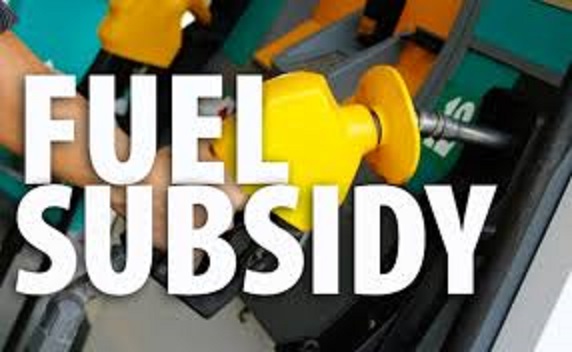Nigeria’s decision to eliminate fuel subsidies has had a significant impact, resulting in the collapse of a thriving black market in West African nations.
This informal sector, which played a central role in the region’s economic activity, has been disrupted as the price of cheap contraband Premium Motor Spirit, better known as petrol, from Nigeria suddenly doubled.
In a report on Monday, American news platform, Reuters, noted that black market fuel vendors and commercial drivers in Cameroon, Benin and Togo, who heavily relied on smuggled petrol from Nigeria, have witnessed their businesses crumble since the subsidy removal.
As fuel supplies dwindle, long queues have formed at official petrol stations, where prices are now competitive.
In Garoua, a town in North-West Cameroon near the Nigerian border, the cost of a litre of petrol on the black market used to be around 300 CFA francs (about $0.48) but it has skyrocketed to a minimum of 600 CFA francs, causing dissatisfaction among customers who perceive the high prices as unjustified.
The repercussions extend to commercial motorcycles, or okada, leading to conflicts between hand-to-mouth riders and customers demanding low fares, regardless of the circumstances.
Ousmanou Mal Djoulde, a rider in Garoua, has been forced to more than double his fares, resulting in many customers refusing to pay and business becoming painfully slow, Reuters reported.
The trade in black market fuel holds such significance in the local economy that authorities either turn a blind eye or are complicit. A Reuters reporter in Garoua observed a Cameroonian customs officer seated on a motorcycle being refuelled with smuggled Nigerian petrol.
Unfortunately, there is no reliable data on the volume of fuel smuggled from Nigeria. The head of Nigerian National Petroleum Corporation, Mele Kyari, acknowledged that 66 million litres of petrol leave their depots daily, but he could not provide an accurate estimate of local consumption. Smuggling is acknowledged to be rampant.
According to Reuters, Benin and Togo, neighbouring nations to the west of Nigeria, have also witnessed a decline in supplies and customers for contraband fuel vendors, while official petrol stations have experienced a sudden surge in activity.
At the Hilacondji border crossing between Togo and Benin, some black market fuel stalls have closed, leaving vendors waiting with empty containers for potential deliveries.
In the absence of improvements, some individuals have sought alternative livelihoods such as fishing or engaging in other small businesses. The closure of informal fuel depots has left previously employed individuals without work, adding to the unemployment rate.
According to the United Nations, over 80% of employment in Africa is in the informal sector, making it a crucial driver of economic activity. In Cotonou, the commercial capital of Benin, located about 60 km from Nigeria, long queues have formed at official petrol stations, and some have struggled to meet the sudden surge in demand, particularly from commercial motorcyclist, locally known as “zemidjan.”
A worker at the JNP fuel station in Cotonou, named Janvier, reported that their daily sales have increased from around 2,000 litres to up to 7,000 litres. However, the heightened demand has caused supply shortages, forcing them to turn away customers.
https://punchng.com/vibrant-west-africas-fuel-black-market-collapses-on-nigerias-subsidy-removal/




